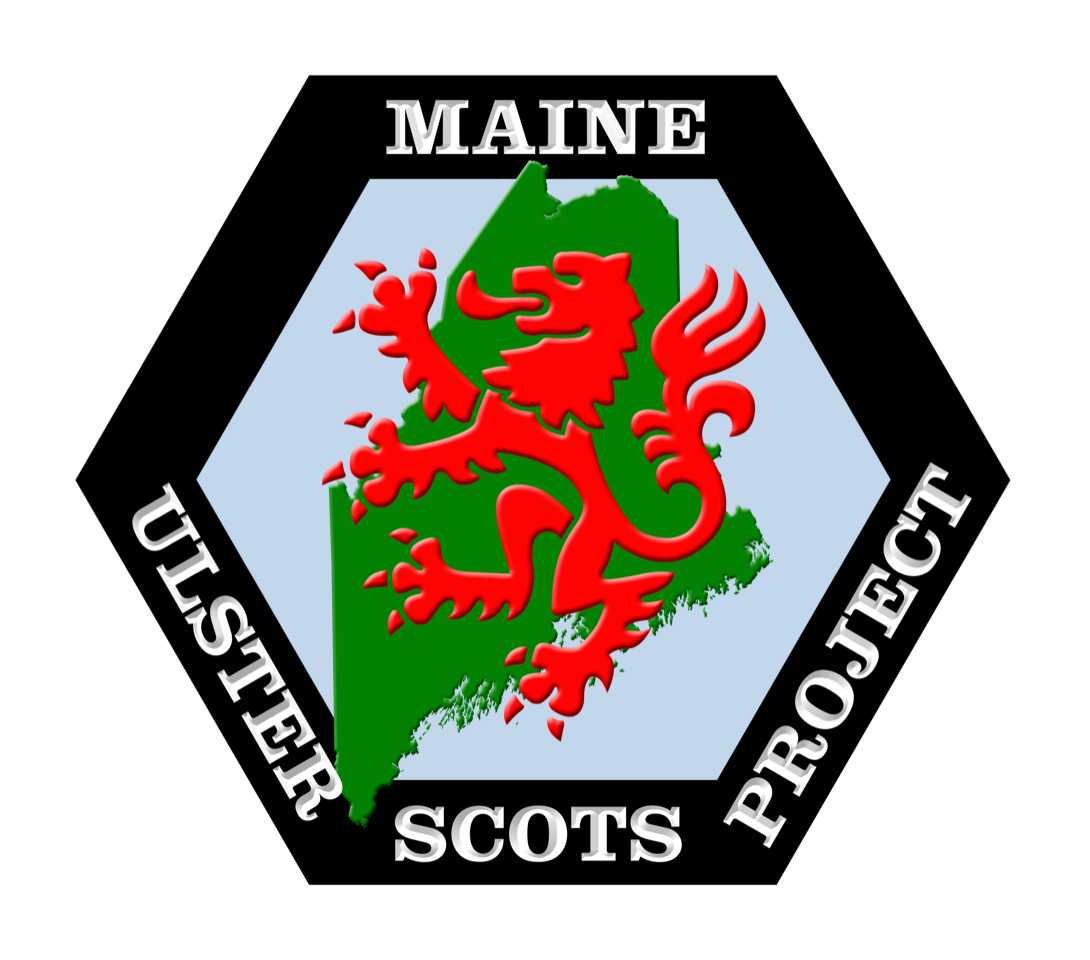The Ulster-Scots ‘Means’ homestead story gets a fresh look.
Page 3 – THE HISTORIC SETTING ~ John T. Mann, Director MUSP
The Ulster-Scots in the north of Ireland were being pushed by years of poor harvests, high rents, and discrimination against their Presbyterian form of Protestant religion. At the same time, they were being pulled by the opportunity to own land which was being advertised by New England clergy and owners of large land grants in the border lands located between English settlements in New England and French settlements in New France. The two European powers used both Native Americans and Ulster-Scots emigrants as chess pieces in their struggle for control of North America. The Scots-Irish came by the thousands intent on claiming their share of the American dream. The District of Maine, at that time was at the Eastern Frontier and subject to recurring hostilities between France and England. The arrival of Ulster-Scot families in the Kennebec River valley helped trigger “Dummer’s War” in 1722. The resulting raids by Native Americans throughout the summer of 1722 destroyed many of the newly established homesteads in and around the lower Kennebec River. The conflict ended with the destruction of the Norridgewock village, the massacre of Native American men women and children living there, and the death of Father Rasle their spiritual leader.
Page 4 – WHERE TO BEGIN - THE FIRST ARRIVALS ~ John T. Mann, Director MUSP
The MUSP organization includes an active committee of volunteers, led by Historic Archaeologist Pamela Crane. Historic archaeological investigation is used to uncover and share information on Maine’s Ulster-Scots families, how they established themselves in the “Eastern Frontier,” how they adapted to a new environment, and how they lived their daily lives. It was thought that finding an Ulster-Scot homestead established in 1718 and burned out during Dummer’s War in 1722, would afford the opportunity to study the earliest presence of Ulster-Scots’ life in Maine.
MUSP volunteers were able to find and investigate the McFadden homestead on Merrymeeting Bay. The site had been occupied from 1718 until its destruction by fire during the raids of 1722. MUSP spent seven years doing an archaeological dig at the site which culminated in an internationally attended symposium on Ulster-Scots studies in Maine and the book: “1718-2018 Reflections on 300 years of the Scots-Irish in Maine.” (Available at www.maineulsterscots.com and at the Freeport Historical Society).
Archaeological work at the first generation (1718-1722) McFadden family site. From “1718 -2018 Reflections on 300 years of the Scots-Irish in Maine.”




